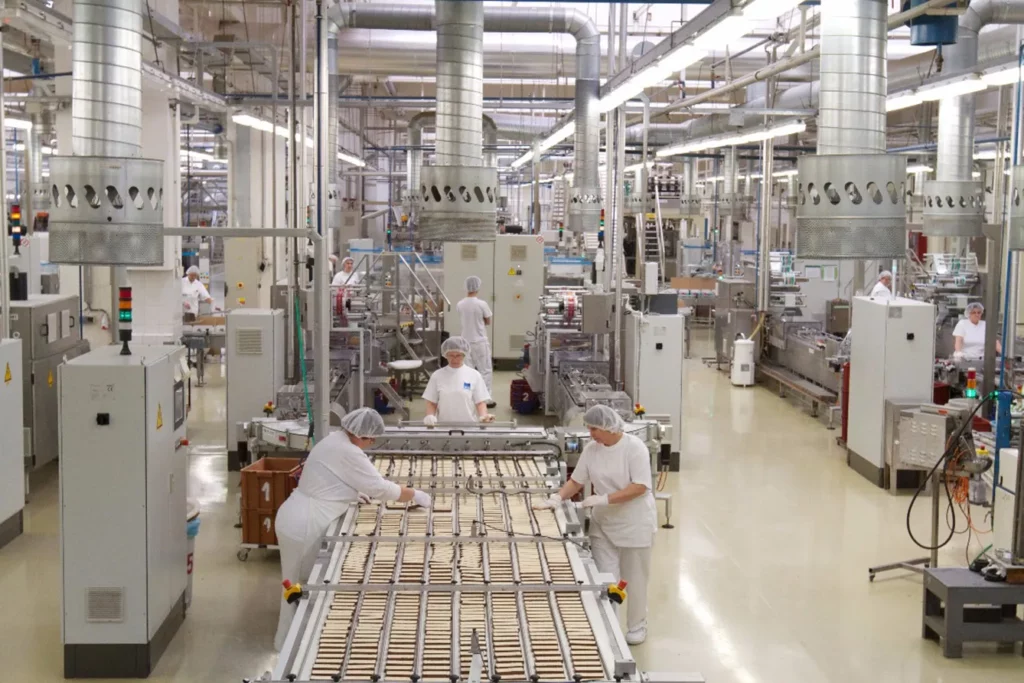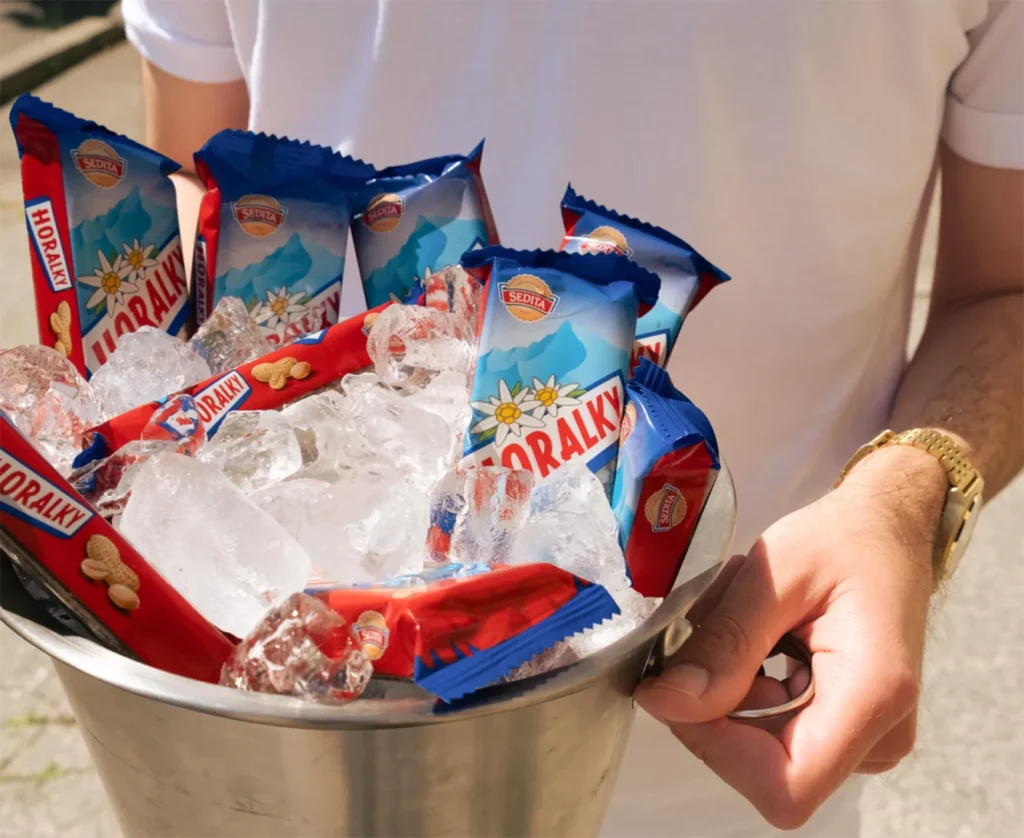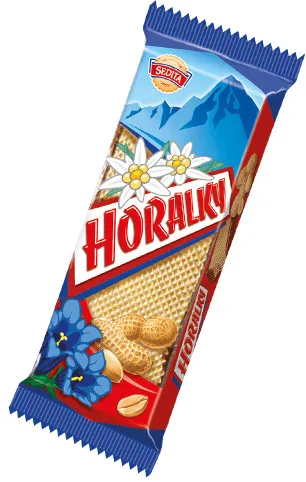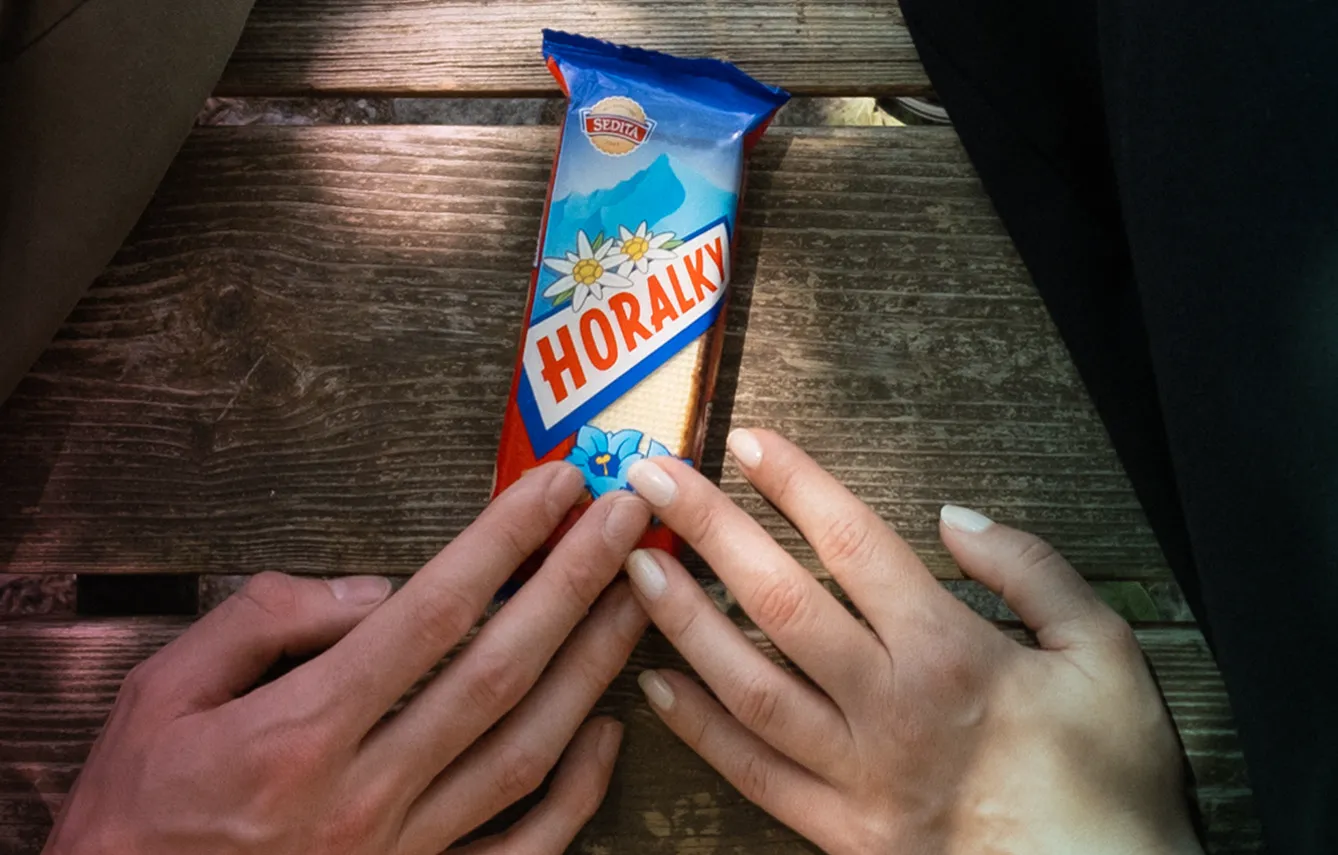Horalky is, without a doubt, the most beloved Slovak biscuit, not to mention the best-sold product in the country. It is estimated that Slovaks consume two Horalky every second. Industrial production of these ‘wafers dipped in chocolate’ has been ongoing since 1959, with the current recipe in use since 1965. And although Horalky is not the only biscuit of its type in Slovakia, it is one of the only to have reached cultural icon status.
What makes it so tasty?


Photos: courtesy of I.D.C. Holding s.a.
As with many famous food products, the Horalky recipe is a well-guarded secret. What we can say for sure is that the ingredients include roasted peanuts from the Ivory Coast and cocoa from the Americas, combined with a crunchy wafer. It was created in a formerly state-run food production factory called Slovenské pečivárne (Slovak Bakeries) by accident. The legend goes that the bakery was running out of the hazelnuts used to make a similar wafer biscuit called Tatranka and thus decided to use peanuts instead. Horalky was launched in 1965, and though it has inspired lots of copycat competition, none has been able to capture the market like the original wafer has.
Though the recipe hasn’t changed in decades, the packaging has, currently featuring flowers and national symbols. Likewise, the modern production of Horalky has been almost completely automatized, enabling the making of as many as 160 million biscuits every year. That breaks down to around two million made per shift, requiring the work of 20 employees on a production line.
Who is behind it?
Many state-owned factories went bankrupt after 1989 or were privatized. Slovak Bakeries, founded in 1953, were lucky as two skilled entrepreneurs purchased them shortly after the Velvet Revolution of 1989. Unlike other famous products, such as Kofola, which nearly disappeared in the 1990s, Horalky has been produced without a break.

Horalky is currently owned by I.D.C. Holding, which is made up of several bakeries. The company is owned by entrepreneur and architect Pavol Jakubec, one of the most wealthy Slovaks, who is known for his car collection. However, he’s not particularly well-known to the public as he likes to keep a low profile.
However, that is not the case for his former business partner and co-owner of I.D.C Holding, Štefan Kassay, who has been of interest to the media due to his life story. Kassay started as a turner in agricultural machinery but acquired several higher education degrees in journalism and entrepreneurship while becoming a millionaire after 1989.
Today, the company employs around 1100 people, and its confection products are found in almost every store in Slovakia.
A wafer by any other name…
Horalky is sold under different names in other countries, like Poland, where it is called Góralki, or Hungary, known as Moments. The sweet treat is relatively easy to find in countries with a Slovak community or diaspora, like the United Kingdom, Ireland, France, and Germany. You can even find them in more exotic and distant places, like China, South Korea, and Jordan.
Horalky is so ubiquitous to Slovakia that it is not uncommon for Slovaks to carry Horalky with them to exotic places. Thanks to this, Horalky has been photographed on the tallest peaks, including Elbrus, in the Russian Federation and other exotic locations.
In the meantime, the current owner sees a long and sweet future for Horalky, as his descendants will inherit the company – along with the recipe for the cult-status treat.







